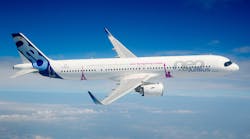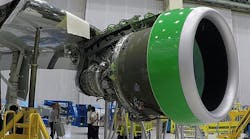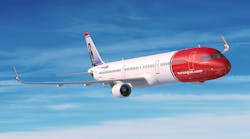Airbus SE reported that the forthcoming long-range version of the A321neo jet has gained approval from the European Air Safety Agency and the Federal Aviation Administration for operation with launch customers, including operations with up to three underfloor Additional Center Tanks (ACTs), including extended operations (ETOPS.)
The approvals affirm that the A321LR is certified to fly up to 4,000 nm with 206 passengers, with extra fuel stored in three ACTs. Moreover, the ETOPS authorization allows up to 180 minutes of single-engine diversion time, which is sufficient for any transatlantic route, Airbus stated.
The A321neo is part of the “re-engined” A320neo (“new engine option”) family of single-aisle aircraft, available with the CFM International LEAP-1A or Pratt & Whitney PW1000G engine and other design updates for improved fuel-efficiency.
The A321LR is designed to carry 206 passengers in two classes for routes up to 4,000 nmi (7,400 km / 4,600 miles), 500 nmi further than the regular A321. According to Airbus, the A321LR will have the longest range of any single-aisle commercial jet, suitable for transatlantic and other “long haul” routes that are not currently feasible for single-aisle aircraft.
The first aircraft are scheduled to debut in Q4 2018, with Air Lease Corp. as the launch customer.
In 2016 Airbus reported that low-cost carrier Norwegian Air Shuttle ASA ordered 30 Airbus A321LRs, updating part of an earlier order for 100 A320neo jets. The 30 long-range aircraft were reported to be set for delivery between 2019 and 2021, as the carrier seeks to offer more service between Europe and the Western Hemisphere, and between Scandinavia and Asia.
The A321LR completed its first flights in January of this year and has been undergoing test flights since then.
The A321LR’s certification includes EASA and FAA approval for installing up to three optional ACTs, as well as the A321neo’s “Airbus Cabin Flex” (ACF) option, which incorporates a modified fuselage structure with new door arrangements, and a higher Maximum Take-Off Weight (MTOW) capability of up to 97 metric tons.
Airbus noted that the ACF configuration will become standard for all new delivered A321neo jets, starting in 2020,








